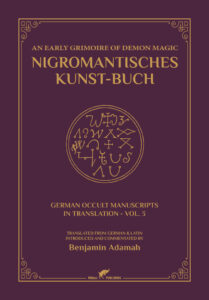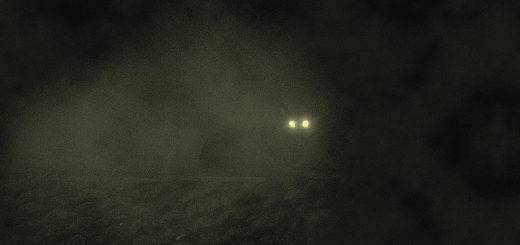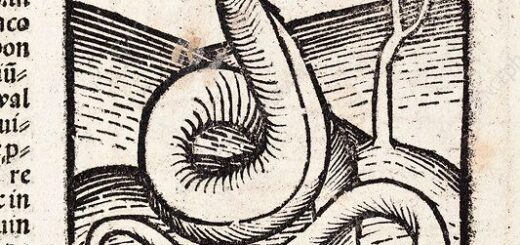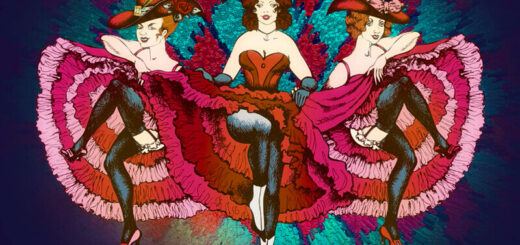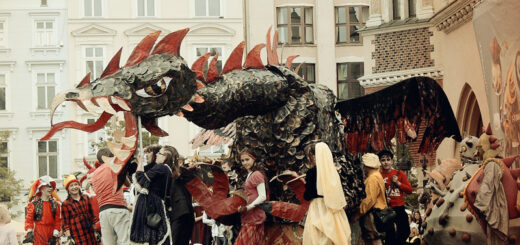La Vie Parisienne, the god Pan, mermaids and other creatures
La Vie Parisienne (the Parisian life) was a French weekly magazine founded in Paris in 1863 and was published without interruption until 1970. It was popular at the start of the 20th century. Originally it covered novels, sports, theater, music and the arts. In 1905 the magazine changed hands and the new editor Charles Saglio changed its format to suit the modern reader. It soon evolved into a mildly risqué erotic publication. During World War I, General Pershing personally warned American servicemen against purchasing the magazine, which boosted its popularity in the United States.
La Vie Parisienne was hugely successful because it combined a new mix of subjects—short stories, veiled gossip and fashion banter, also comments about subjects from love and the arts to the stock exchange—with beautiful cartoons and full-page color illustrations by leading artists of the age. Alongside this the magazine also reflected the changing interests and values of the start of the 20th century population such as fashion and frivolity.
The artwork of La Vie Parisienne reflected the stylization of Art Nouveau and Art Deco illustration, mirroring the aesthetic of the age as well as the values, and this coupled with the intellectualism, wit and satire of its written contributions was a combination that proved irresistible to the French public.
The largest collection of La Vie Parisienne magazine artwork in the UK is held by The Advertising Archives, a free-to-view resource holding cover and interior artwork of illustrators including George Barbier, Chéri Herouard, Georges Léonnec and Maurice Milliere.
The historical La Vie Parisienne ceased to exist in 1970. A new magazine of the same name started in 1984 and is still in existence.
The nature god Pan was a frequent guest in the magazine. So were the mermaid, the centaur and other (light version) occult themes.
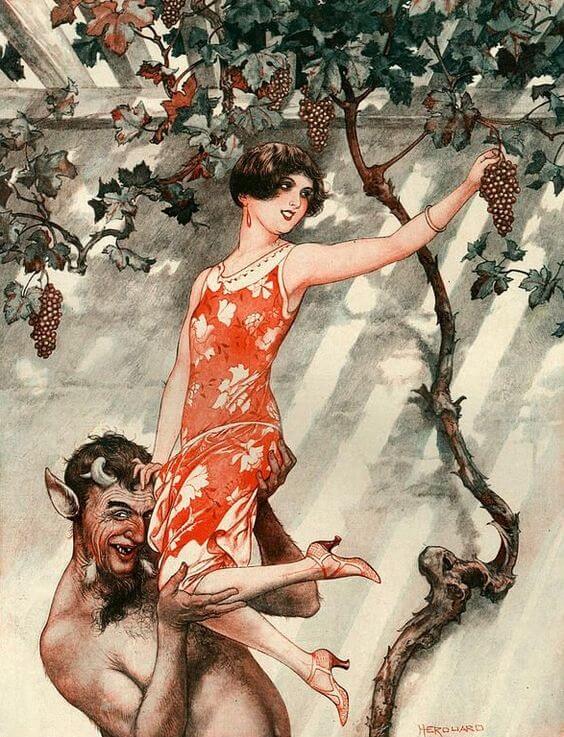
Pan lifting a girl to pick grapes

Statue of Pan
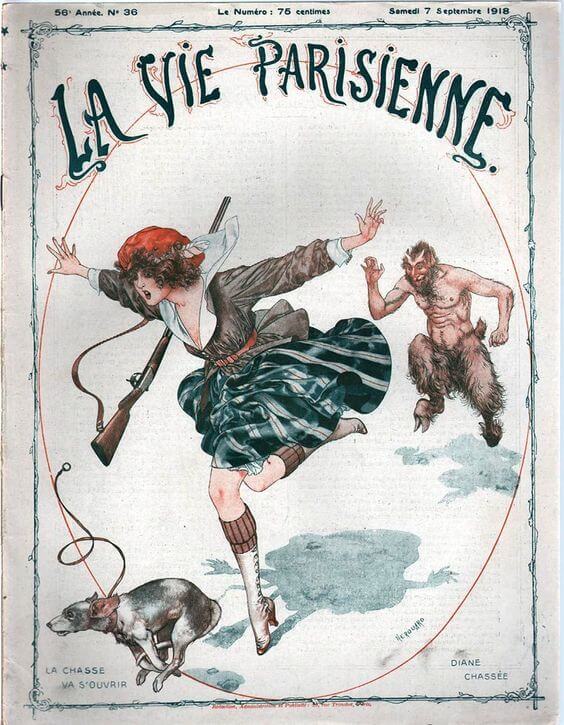
Pan chasing a huntress 1918
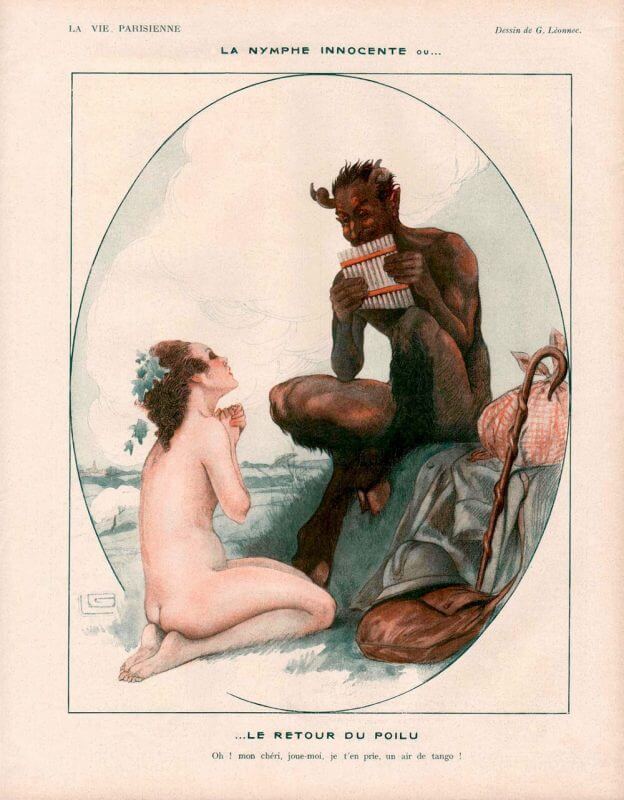
Nymph listening to Pan playing the pan flute
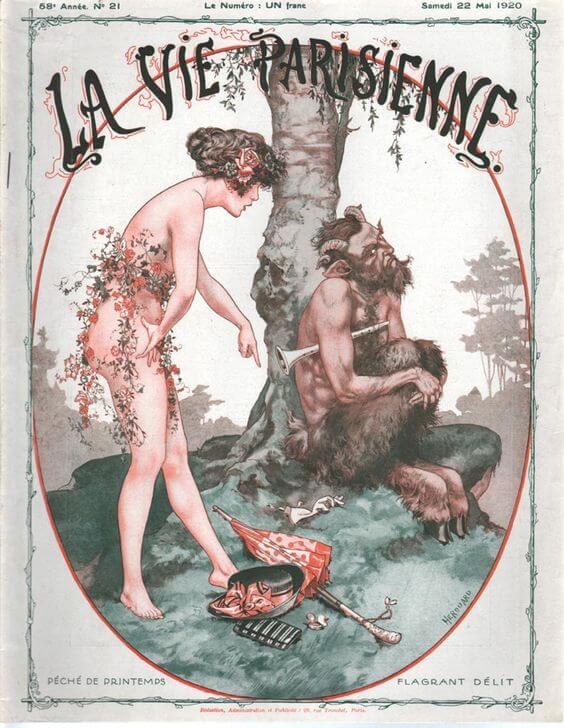
The god Pan and naked woman 1920

Mermaid

Bird woman

Woman riding a centaur

Butterfly creature

The Follies of a Day – Illustration by Georges Léonnec for La Vie Parisienne (May 1931)

Magazine cover april 1932
You may also like:

